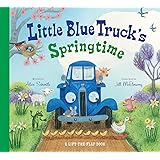Grain farmer ‘racing against time’ to avoid potential Trump tariffs
The ever-changing tariff threats from the Trump administration have caused some businesses to start shipping their products to the U.S. earlier than normal to lock in pricing.
That includes grain farmer Landon Friesen, co-owner of Southman Ag Ventures. His facilities are based just outside of Crystal City, a small Manitoba community less than 200 kilometres southwest of Winnipeg.
As his farm is only about an hour’s drive from an agricultural terminal in Langdon, N.D., Friesen has regularly sold grains such as wheat directly to U.S. customers.
Typically, wheat harvested in the fall would be held in Canadian silos for months, and transported over most of the winter to the U.S.
Not this year. Friesen says work that would normally be spread out “over quite a few months” is now being done in two months.
“It’s been a busy season of just pushing hard to get as much across as we can before the potential tariff. We don’t know if he’ll [Donald Trump] extend it again or if this is going to be it,” he said.
Canadian grain farmer Landon Friesen needs to get most of his harvest across the U.S. border months ahead of schedule to try to avoid tariffs on Canadian wheat. CBC News hopped in one of his trucks for a trip from Crystal City, Man., to North Dakota to find out what tariffs mean for this part of rural Canada.
At one point recently, he was making the trip across the border three times a day.
Friesen and industry groups, say the proposed tariffs would likely lower the price Americans are willing or able to pay for Canadian agricultural products.
Friesen expects a 25 per cent tariff would take at least as much off the price he gets for his grains. By moving it across the border now, he avoids risking that loss.
“Our bottom line isn’t big enough to absorb that,” he said, pointing out that his total wheat crop this year is going to North Dakota. He’s got 230 loads to transport, and CBC News rode along with him and No. 228.
That compares to the same time in 2024, when Friesen says he’d only taken 15 to 20 per cent of his wheat across the border.
“The grain won’t go bad, but our markets are going to close down, or the tariff will hurt the markets. And that’s what we’re racing against time,” he said.
It’s unclear how much grain is crossing the border earlier than usual this year. In 2023, Canada exported more than $1 billion of wheat to the U.S.
CHS, the terminal operator in Langdon, says it’s monitoring the looming tariffs closely and will work to ensure access to global trade routes for American farmers.
“The situation is fluid, and we’re focused on continuing to best serve our customers,” a company representative wrote in an email.
Markets will push back
Lower prices for Canadian grain would be expected in the event of tariffs, according to J.P. Gervais, chief economist at Farm Credit Canada.
While initially, tariffs would cause U.S. buyers to face a higher price for Canadian grain, Gervais says they would be less likely to want to pay that.
“The markets are going to push back on the higher price in the U.S. The likely result would be a lower price on this side of the border for the Canadian seller,” he said.

Gervais says it’s very difficult to predict what’s to come for Canadian farmers, however, because other countries come into play.
In particular, trade between China and both the U.S. and Canada will impact the prices that Canadian farmers can demand on international markets because China is a “huge player” in commodities.
He says Canadian farmers will not just be able to change who they sell to and where without incurring costs.
“The fact is that diversification and all of the impacts are going to raise costs of doing businesses for Canadian businesses, and that’s going to have an impact for Canadian consumers,” he said.
Friesen says, despite the extra work his team is putting in, he understands and respects U.S. political decisions.
“I mean, these are our neighbours to the south. We’ve done life with them, right? We don’t have a big border wall. There’s always been a lot of respect for each other,” he said.
He also said he knows tariffs could hurt industry in Canada, along with increasing costs for consumers too. But as someone who has lived near the U.S. border for years, he hopes for an amicable solution.
“We all need to get along. We can’t pick up and move.”
View original article here Source










